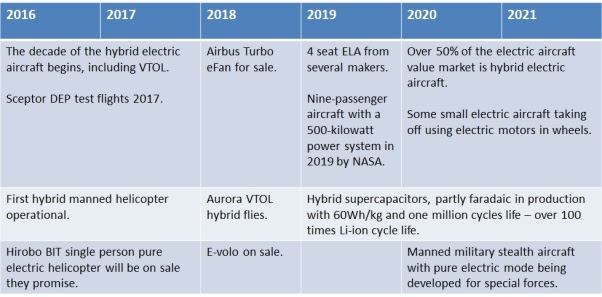China's first hydrogen-powered ship makes maiden voyage
The vessel has a steel-aluminum composite structure with a total length of 49.9 meters, a beam of 10.4 meters, and a draft of 3.2 meters. Powered by a 500 kW hydrogen fuel cell, the ship has a maximum cruise range of 200 kilometers.
Fuel cell versus battery trucks - How can automotive manufacturers create a zero emission future?
In terms of refuelling time, FCEVs have a huge advantage over BEVs, taking around three to five minutes to refuel. This means that lorries can get straight back onto the road with minimal downtime, without hampering delivery expectations.
4 Innovations for a Post-Carbon Transportation System
Before we examine the transportation innovations for a post-carbon country, we must assess the ecologically degrading features of conventional systems.
Hydrogen Fuel Cell Cars are Coming - Maybe
Building out the infrastructure, such as securing renewable hydrogen, and getting fuel costs down for the time when hydrogen is no longer included with the car, is a massive undertaking.
2018 will be the year of the electric car
Peter Valdes-Dapena for CNN Money: In 2018, electric cars will finally turn the corner from curious niche product to become a viable option for America's families. Next year will mark a turning point in the ultimate electrification of America's roads.
The World's First Fully Solar-Powered Train Just Left the Station
Futurism: The Byron Bay Railroad Company has created the first fully solar-powered train. While it doesn't travel long distances, it does prove that the Sun is a viable source of energy for passenger transportation.
In 10 years' time trains could be solar powered
Alice Bell for The Guardian: A technique has been devised that allows electricity to flow directly from solar panels to electrified train tracks to the trains themselves making solar powered trains more feasible than ever before
The Latest Progress on Electric Cars
China will lead the transition to an EV-driven society. Car companies are doubling down on plans to produce a selection of electric vehicles. Because of its substandard air quality, China has been pushing electric vehicles, which could help automakers with the economies of scale.
Flight to the future: Solar Impulse shows we can run the world without consuming the earth
The lessons of Solar Impulse are clear: by pushing the boundaries of technology, and refusing to accept limits, technological or psychological, we can run the world without consuming the earth, and reach heights we never believed were possible.
Manned Electric Aircraft 2016-2031
It is now clear that the MEA business will be around $24 billion as soon as 2020 but the new analysis by IDTechEx sees truly hybrid and pure electric aircraft being a $24 billion business in 2031.
Even out the Odds: A Switch to Greener Transport
India must look beyond its current state towards the type of country it hopes to become, and must find a balance between increasing wealth and prosperity, acceptable mobility and access, and low emission levels.
The Dynamic Road Ahead: England To Conduct Trials Of Dynamic Wireless Charging For Electric Cars
The popularity of electric cars in the UK has shot up over the last few years, with around 50,000 plug-in vehicles on the road, compared with just 3,500 in 2013. This huge increase in electric cars in 2015 has augmented because of a shift in the publics approach towards electric cars and a persistently refining public recharging network.
In The Midst Of Toxic Oil Spill, Vancouver Announces It Will Go 100 Percent Renewable
There’s some mixed news coming out of Vancouver, Canada this week. On the one hand, the city announced at an international sustainability summit that it would commit to using 100 percent renewable energy to power its electricity, transportation, heating and air conditioning within 20 years. On the other hand, Vancouver is also dealing with a fuel spill in the waters of English Bay that is washing up on beaches and threatening wildlife.
On March 26, Vancouver’s city council voted unanimously to approve Mayor Gregor Robertson motion calling for a long-term commitment to deriving all of the city’s energy from renewable sources. At the ICLEI World Congress 2015 this week in Seoul, South Korea, the city went a step further, committing to reaching that goal of 100 percent renewable electricity, transportation, heating and air conditioning by 2030 or 2035.
Right now, Vancouver gets 32 percent of its energy — that includes electricity, transportation, heating, and cooling — from renewable sources, so the goal is ambitious, but not impossible. According to the Guardian, Vancouver could get all of its electricity from renewables within a few years, but transportation, heating, and cooling may prove more difficult.
Hydrogen Fuel Cells for Cars and More
When hydrogen is compressed, it is much more energy-dense than even the most advanced batteries.
Financing California's Electric Vehicle Future
California's Alternative and Renewable Fuel and Vehicle Technology Program, for example, is more than half way through implementing its target of supporting installation of more than 6200 charging stations, and Tesla, Nissan, and Rabobank/SolarCity have been developing their own charging networks in California.
Records 1 to 15 of 20
Featured Product

MORNINGSTAR - GenStar MPPT
GenStar MPPT is the industry's first fully integrated solar DC charging system, an all-new design with "lithium DNA" from the leader in charge controllers. Out of the box, GenStar is an overachiever-delivering legendary Morningstar quality, efficiency, power and reliability along with the latest in advanced communications and control technologies. All the most installer-requested features are on-board; additional features can be easily added via Morningstar's ReadyBlock expansion technology, with snap-in blocks that provide battery metering and monitoring, signaling and load control, and lithium battery communications/control














